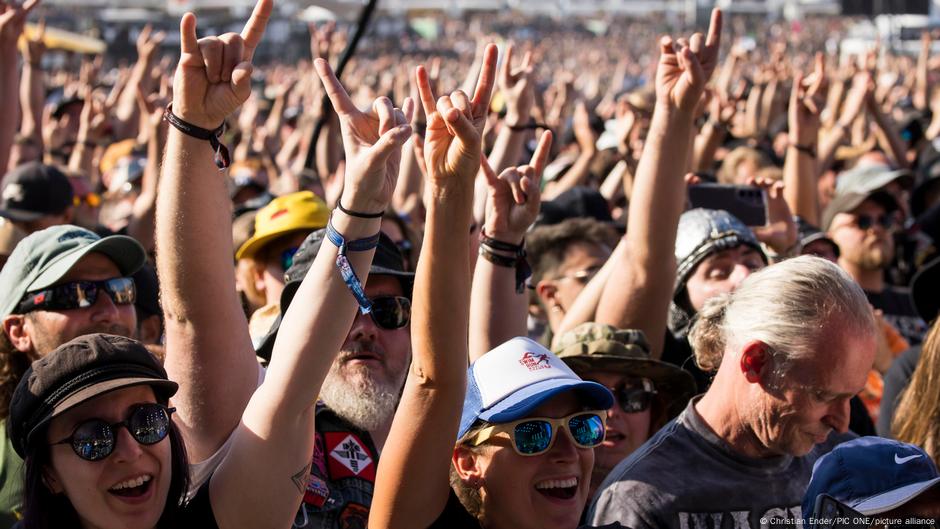
A Unique Cultural Experience
Wacken Open Air, commonly referred to as W:O:A, is more than just a festival of metal music. It has evolved into a vibrant community and cultural event that draws thousands of fans from around the world. Here are five essential things to know about this iconic gathering.
From Provincial Festival to International Affair
The roots of Wacken Open Air trace back to 1990 when it was a small event with only 800 attendees and local metal bands. The first location was a former gravel pit on the outskirts of Wacken, a village northwest of Hamburg. Over the years, the festival has grown significantly, becoming one of the largest and most renowned metal festivals globally. Each year, approximately 185,000 fans from over 80 countries gather for the four-day event.
Tickets often sell out within hours, despite rising prices — this year’s ticket cost €333. The festival has also become increasingly commercialized. However, its core remains a meeting point for the global metal community. Visitors can expect to see the iconic "devil's horn" salute, a raised fist with the index and pinky fingers extended, along with the enthusiastic battle cry: "Wackeeeeeen!"
A Temporary Metropolis
During the festival week, the village of Wacken transforms into a bustling metropolis with around 95,000 people, including fans, crew members, musicians, and media from across the globe. The 240-hectare site features an independent infrastructure with over 1,300 toilets, hundreds of showers, its own electricity and water supply, waste collection, and even a small police station. Mobile medical stations, field kitchens, shuttle buses, and a sophisticated traffic management system support the massive crowd.
Despite heavy rain and mud — a hallmark of the festival — the event continues. Wood chips form the base, and a drainage system helps manage the conditions. Local farmers assist by pulling stuck vehicles out of the mud with their tractors. However, in 2023, the mud proved too challenging, making the site largely impassable and forcing around 235,000 fans to turn back, nearly leading to the festival's cancellation.
A Beer Pipeline
Beer is a staple at Wacken, with many metalheads maintaining a steady flow throughout the day and night. To ensure an uninterrupted supply, an underground beer pipeline was installed in 2017. This system connects central tanks with multiple taps on-site, capable of transporting up to 10,000 liters of beer per hour. This not only reduces transportation needs but also protects the roads and guarantees a continuous supply.
Food options range from classic currywurst fries to vegan falafel pockets, with food trucks spread across the festival grounds. Since 2022, a new payment system has been in place, where the festival wristband contains a chip that can be topped up with a debit or credit card at various stations. Cash and card payments are no longer accepted.
More Than Metal
While metal is the central theme at Wacken, the festival offers a variety of other experiences. Major acts perform on three main stages named "Faster," "Harder," and "Louder." This year’s lineup includes renowned artists like Guns N' Roses, Papa Roach, Machine Head, and Gojira. Fans gather in front of the stages on what is known as the Infield, or "Holy Ground."
Other areas provide different experiences. The Wackinger Village features jugglers, knights, fire shows, and medieval bands, offering hearty dishes like suckling pig and oxen on a spit. The Wasteland area has a post-apocalyptic design with flame throwers and scrap metal structures, while the Beergarden serves as a relaxed spot for metalheads with performances by the Wacken Firefighters.
Additional stages feature comedy, spoken word, metal yoga, wrestling, and readings, ensuring there is something for everyone.
Metal Takes a Stand
Beyond the music, Wacken sees itself as a platform for social and cultural outreach. The Wacken Foundation, established in 2009, supports emerging metal and hard rock bands worldwide through financial assistance for studio recordings, tours, and instruments. The foundation receives donations from fans and organizers alike.
The Wacken Metal Battle is a global competition where young bands from over 30 countries, including Trinidad & Tobago and Botswana, compete for a chance to perform on one of the festival's main stages. The Wacken Music Camp brings together young people from Germany to create and perform their own music under professional guidance.
Health-related initiatives, such as campaigns against blood cancer, encourage attendees to register as potential stem cell donors. Through these efforts, Wacken demonstrates that even loud music can make a meaningful impact and support worthy causes.


Posting Komentar